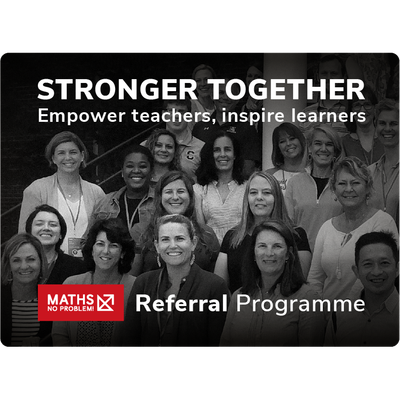How to develop learners’ metacognition skills with effective questioning
Editor’s Note:
This is an updated version of a blog post originally published on December 7, 2020
Effective questioning in the classroom has always been seen as the mark of a skilled teacher — and for good reason. But how can it be used to develop learners’ metacognition skills? Primary teacher Alex Laurie investigates.
Effective questioning allows teachers to assess learners’ understanding and deepen their knowledge of a concept. But it also provides an opportunity to model questions that learners can ask themselves. This kind of questioning has a different goal — to develop learners’ metacognition skills.
Learn why this sometimes overlooked goal is important to your teaching practice and four ways to use effective questioning to develop metacognition in your classroom.
Why are metacognitive skills important?
Put simply, metacognition is the ability to think about one’s thinking.
Research suggests that there’s a direct link between learners’ metacognition and their achievement in mathematics. When you compare the behaviour of high-achieving and low-achieving learners in problem-solving tasks, you often find key differences.
High-achieving learners:
- Explain things to themselves as they work through examples
- Try to construct relationships between new processes and what they already knew
- Tend to infer additional information that wasn’t directly given
Low-achieving learners:
- Follow examples step-by-step without relating it to anything they already knew
- Don’t try to construct a broader understanding of the procedure that would enable them to generalise it to new situations
How can we use effective questioning to develop metacognition and higher-order thinking?
Is there a reason for low levels of metacognitive skills in schools? Perhaps it’s because 93% of teachers’ questions are lower-order knowledge-based questions that focus on the recall of facts.
Asking lower-order questions with ‘yes/no’ or ‘right/wrong’ answers can stunt the development of children’s metacognition and communication skills, as they do not provide them with an opportunity to reflect on how they reached an answer.
Often children can answer the question correctly without understanding. Asking these lower-order questions doesn’t offer valuable information about a learner’s level of understanding.
Instead, focus on one rich problem and use higher-order questioning techniques within the problem. Your learners’ responses will reveal various levels of understanding as well as the strategies each child has been exposed to and how they approach maths problems in general.
Boost Your Practice with FREE CPD
Receive a CPD boost every time you refer a school! Both you and the referred school will earn a full day of CPD and 2 free places on our 3-day Essentials of Teaching Maths Mastery course (valued at £1700).
Get started on helping struggling schools reach maths success now!

Four effective questioning techniques for developing metacognition
Developing metacognitive skills starts with using effective questioning in the classroom. These questions develop learners’ reasoning and thinking skills, and indicate that there are multiple approaches to a maths problem. The exploratory language that is often used in open-ended questions in primary school maths invites reflection.
So why do teachers avoid using this questioning approach?
Often, it boils down to the fact that many teachers are unsure of where and how they can provide learners with an opportunity to engage in an open-ended task in a lesson.
If this sounds like you, here are four main categories of open-ended questions in primary school maths you can use.
1. Ask questions that give learners a starting point
Starter questions can be used as prompts to give learners a starting point without guiding them towards a specific direction.
Examples of starter questions are:
- How could you sort these?
- How many ways can you find to…?
- What happens when we…?
- What can be made from…?
- How many different [ ] can be found?
2. Ask questions that stimulate mathematical thinking
It’s important to ask questions that focus on particular strategies and help learners make generalisations by seeing patterns and relationships that can extend further than the mathematical area at hand.
You can use these types of questions as prompts if children get stuck. A common mistake teachers often make with these kinds of questions is the temptation to turn them into instructions, which can limit the opportunity for learners to explore topics more deeply and develop relational understanding.
Examples of questions that stimulate mathematical thinking:
- What is the same?
- What is different?
- Can you group these [ ] in some way?
- Can you see a pattern?
- How can this pattern help you find an answer?
- What do you think comes next? And why?
- Is there a way to record what you’ve found that might help us see more patterns?
- What would happen if…?
- Is there another way?
3. Ask assessment questions
Assessment questions assist in developing children’s reasoning skills by asking them to explain what they are doing. This sort of effective questioning in the classroom encourages children to reflect on their learning, develop critical-thinking skills and make deeper connections.
They also give you more insight into a learner’s thinking and their level of understanding.
Examples of assessment questions:
- What have you discovered?
- How did you find that out?
- Why do you think that?
- What made you decide to do it that way?
4. Ask final discussion questions
At the end of a lesson, ask children to discuss and compare all different strategies and methods used by the class. These are known as final discussion questions.
Final discussion questions develop learners’ metacognition skills by giving children the chance to see how their peers are working and encouraging them to evaluate their solutions against others in the class.
Here are a few examples:
- Who has the same answer/pattern/grouping as this? How do you know?
- Who has a different solution? How is it different?
- Are everybody’s results the same? Why or why not?
- Have we found all the possibilities? How do we know?
- Have you thought of another way this could be done?
- Do you think we have found the best solution?
The way you use effective questioning in the classroom and the kinds of questions you ask plays a large part in the creation of lifelong mathematicians.
If you ask an open-ended question in primary school maths, you need to provide the time and the opportunities that allow the children to really think through their answers. The information that the teacher and the learner gather from the questions asked should stretch far beyond just the answer.

